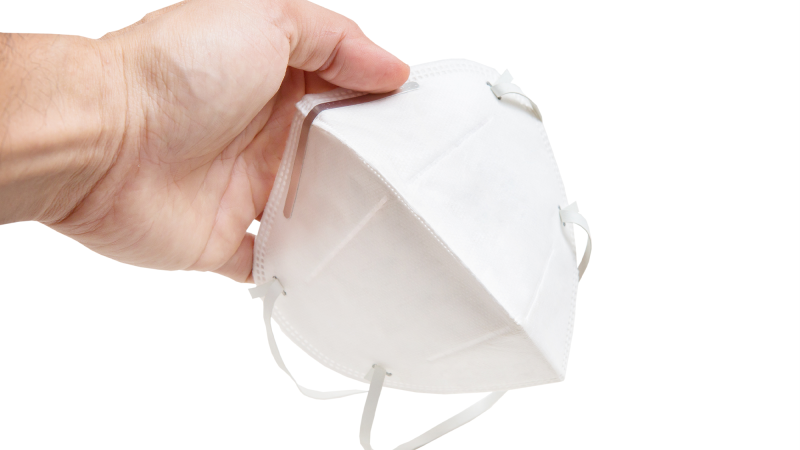

This article was originally featured on Undark.
When Sandy Bagwell began fostering a three-week-old baby in 2019, she knew there was a chance he might have been exposed to drugs or alcohol in the womb. His birth mother, Bagwell said, had struggled with substance use disorders for years. So Bagwell, who later adopted the boy, made sure early on that he saw doctors and therapists.
When her son was about 18 months old, Bagwell said one of his therapists mentioned fetal alcohol spectrum disorder, or FASD, a developmental disorder that can happen after a fetus is exposed to alcohol. At the time, Bagwell said, “I was really ignorant about it.”
Bagwell managed to find the only doctor in her area who specialized in diagnosing such disorders. After a six-month wait and a 10-minute appointment, she recalled, the doctor eventually diagnosed her son with FASD at the age of 2 and a half. That doctor has since passed away, so Bagwell’s son has spent a year on a waiting list for a more complete assessment at Cook Children’s, which is about a five-hour drive from their home in northwestern Texas.
Since the initial diagnosis, Bagwell said her son has had physical therapy, speech therapy, and occupational therapy, and he’s on a waitlist for parent-child interaction therapy. The treatments have helped, she said, but he’s starting to develop behavioral problems serious enough that he may not be able to stay in daycare.
The disorder is not rare, but Bagwell’s story — receiving a diagnosis so early in her son’s life — is. Because there are so few specialists, patients mostly go undiagnosed or misdiagnosed. While research-based dietary and behavioral interventions have been available since the 1990s and 2000s, respectively, patients — including, so far, Bagwell’s son — almost never get these specialized treatments.
Advocates are currently pushing for bills that will make support for children with FASD and their families more widely available, but experts say much more is needed in order to connect them with resources. “People need to see the advantages of learning programs specifically for FASD and why that would matter,” said Christie Petrenko, an FASD specialist at the Mt. Hope Family Center in Rochester, New York. “And they have to recognize that they actually are seeing FASD in the clients they already have.”
It’s been half a century since Kenneth Jones and David Smith, researchers at the University of Washington School of Medicine, demonstrated that alcohol can disrupt fetal development. By 1981, Kathleen Sulik, with colleagues at the University of North Carolina at Chapel Hill, recognized fetal alcohol syndrome, or FAS, as a specific set of traits including unique facial characteristics — a smooth philtrum (the vertical crease under the nose), a flat nasal bridge and midface, and small eyelid openings — and intellectual challenges.
FAS tended to occur in people who were exposed to alcohol between gestational weeks seven and 12, but not long after Sulik’s work, scientists began to realize that exposure to different amounts of alcohol at different points in gestation could cause a range of disruptions, without the distinctive facial characteristics.
More recently, researchers have begun to find evidence that even moderate doses of alcohol, equivalent to one or two drinks, consumed at vulnerable points in gestation may disrupt development, although heavier drinking is associated with a higher likelihood of more serious developmental disruptions. Brain scans of 22- to 36-week-old human fetuses revealed brain differences in those whose mothers reported drinking less than a drink per week on average, according to data presented at a conference in 2022. A study published in 2022 in rats suggested that a moderate dose of alcohol, approximately equivalent to a single drink for humans, given at day 12 of gestation — akin to the start of the second trimester in humans — could lead to lasting social deficits and anxiety. This time is especially important, according to the study’s lead author, Kathryn Przybysz, now a postdoctoral psychiatry researcher at the University of Illinois at Chicago, because “it could be when women don’t know they’re pregnant and are still drinking.”
FASD is thought to impact 1 to 5 percent of people in the United States, according to a study of more than 13,000 first graders. Depending on the genes and nutrition of the mother and fetus, as well as the timing of the exposure and the amount consumed, alcohol can have a range of effects on a developing fetus from social deficits to autoimmune disorders. Scientists see some of the most common effects in areas of the brain that handle short term memory, coordination, and attention and planning. Individuals with FASD may seem forgetful, have difficulty anticipating consequences, and need extra time to process information.
Diagnosing FASD, however, has proven elusive. While researchers are actively searching for biomarkers in blood, teeth, and brain scans, none are currently validated. Typically, to get a true diagnosis patients need to be evaluated by FASD specialists, and there aren’t many of them.
Patients don’t just go undiagnosed, but often are misdiagnosed, said Annika Montag, an epidemiologist and public health scientist at the University of California San Diego. She and her team conducted a study, published in September 2022, for which they screened kids who were receiving services at their local community center for diagnoses such as autism or ADHD, and found that about 7 percent of them likely had an undiagnosed FASD. “The takeaway is children have not been diagnosed with FASD, despite being under medical care,” said Montag. “They’re not getting optimal care.”
In the late 1980s, researchers at Columbia University were finding that supplements of choline, a nutrient found in eggs, beef, soybeans, and codfish, seemed to improve learning and memory in rats by facilitating long-term changes in the structure of the hippocampus, a part of the brain known to be responsible for forming short-term memories. Later studies in humans have supported these early findings.
Given the challenges people with FASD faced with short-term memory and attention, Jennifer Thomas, a neuroscientist at San Diego State University, wondered if choline could help mitigate the effects of in-utero alcohol exposure. In 2000, she fed alcohol to a group of pregnant rats. After the pups were born, she gave some of them large doses of choline and found that days after having received it, the rats performed significantly better on a task that tested their ability to associate light with a reward compared to their counterparts who had been exposed to alcohol but hadn’t received choline.
“The really fascinating thing that she showed was that even after those rodents were born, the choline was still somewhat effective, because the brain is still developing,” said Jeffrey Wozniak, a neurobehavioral development researcher at the University of Minnesota. “That really gave us a model that we could use in humans.”
Over the past two decades, scientists have continued to study choline in humans and have found that if it is given to a pregnant mom after the exposure, or even to children during their first few years of life, the nutrient can reduce the effects of alcohol. Children who received choline between the ages of 2 and 3 showed improvements in memory and attention even four years later, according to a 2020 trial by Wozniak and his team.
Still, choline isn’t a drug; it’s a nutritional supplement, explains Wozniak. While a drug would undergo clinical trials, then be evaluated and approved by the Food and Drug Administration, there’s not an obvious pathway through which choline will become a standard treatment. Although the treatment is largely safe, very high intake of choline (five to 10 times the recommended amount) can lead to a fishy odor, liver damage, low blood pressure, vomiting, or heart disease.
“We’re continuing to do the studies to demonstrate the effects and to put it out into the literature so that people pick it up and say, ‘Okay, this is something we can use as a tool,’” said Wozniak.
Bagwell told Undark that she never had guidance from doctors or other experts on choline. But she did find some of the relevant studies on her own before her son was formally diagnosed with FASD and started giving him the supplement daily when he was 2 years old. “I read so many good things about it, a lot of the studies,” she said.
Researchers have also developed behavioral interventions for both people with FASD, as well as their teachers and caregivers. Two popular programs are the Families Moving Forward and the Math Interactive Learning Experience programs. Providers need about a week of specialized training to offer FMF, but to implement the MILE program, teachers and community centers can learn from resources available online.
FMF is a nine-month program for caregivers of children with FASD. Caregivers attend 90-minute weekly or biweekly sessions with mental health professionals who help them understand their child’s challenges and offer practical strategies to help them thrive, including effective communication and identifying and avoiding triggers that lead to outbursts or difficult behaviors.
In self-reported, validated surveys, caregivers who participate in FMF have said that they felt better equipped to parent and that their children also engaged in fewer problematic behaviors after the program.
The MILE program helps teachers instruct young children with FASD in math, one of the areas in which these individuals tend to struggle the most. The technique uses tools and toys to help kids conceptualize math, but it also addresses emotional regulation in problem solving. Rachelle Feiler, a teacher and researcher in California, explains that anxiety escalates very quickly in many children with FASD. In addition to slowing down and repeating concepts to help children with short term memory deficits or slow processing speeds, the intervention aims to reduce anxiety. For example, she told Undark that when a student asks her if their answer is correct, she used to try helping the child develop their own understanding of math by asking, “Well, what do you think?” But that can cause a lot of anxiety for a child with FASD. Now, she said, she’ll start by saying “You’re right,” or “that’s really close,” before asking, “how did you get that answer?”
After six weeks of tutoring with the MILE program, nearly 57 percent of children with FASD improved their math skills by at least a full standard deviation, according to a 2008 study from the Centers for Disease Control and Prevention, compared to about 23 percent of children in a control group who received standard math tutoring.
While interventions specifically designed for people with FASD and their families exist, they are not consistently available across the country. “There are pockets,” said Wozniak.
Advocates are working at the national and local levels to try and get more consistent recognition and resources. FASD United, a national advocacy organization, has been advocating for Congress to pass the 2021 FASD Respect Act. The act would re-institute the FASD Center for Excellence, which initially opened in 2001 with support from the Substance Abuse and Mental Health Services Administration to identify and disseminate best practices, but lost funding in 2016.
At the state level, California recently passed a bill that adds FASD as a diagnosis that qualifies a child for special education support. Feiler called the passing of the bill “huge.”
“If you’re trying to match a strategy to a student, you’ve got to know what you’re looking at,” she said. “I’ve seen students I thought might have FASD but I’ve never had an IEP, an individualized education plan, come to me with that diagnosis in it. Ever.”
In New York, Petrenko said, most people with FASD don’t qualify for disability services such as therapy, career counseling, and respite for caregivers. “There was a kid here or there,” who might get approved for such services, she said, and usually they had a separate qualifying intellectual disability, but most people whose only diagnosis is FASD are denied.
Working with a government relations officer at the University of Rochester, Petrenko got the attention of a state senator and assemblyman who proposed a bill adding FASD to the mental hygiene law in January 2022. “It actually got unanimously approved in the state senate last session. But they couldn’t push it through the assembly,” she said.
Recognizing that resources for in-person interventions are scarce, some researchers are trying to help patients more directly. For instance, in Minnesota, the American Institute for the Advancement of Forensic Studies offers virtual and in-person training sessions for caregivers, health care professions, and law enforcement about how to better understand and communicate with people who have FASD, autism, and more. And Petrenko and her team have developed a cell phone app that allows caregivers to work their way through the FMF program on their own.
So far, Petrenko has published a pilot study to show feasibility of using the app, but she’s just finished collecting data on her larger trial. The preliminary data, she told Undark, suggests that the app is improving parent satisfaction and child behavior, although not necessarily to the same degree as the in-person program. “But for an app to have any measurable impact is a pretty big deal,” she added. “Because even just a little bit of improvement over a lot more people does have a pretty significant public health impact. So we’re pretty excited about that.”
This article was originally published on Undark. Read the original article.
















